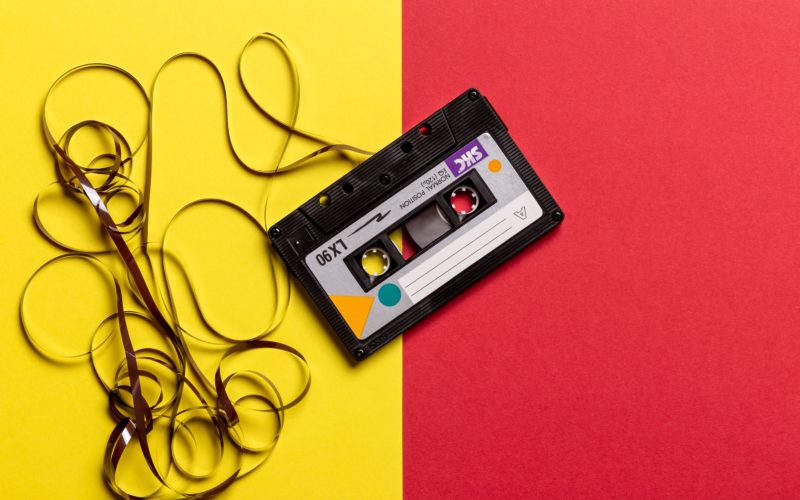The COVID-19 pandemic has forced businesses from all industries to adopt innovative methods to generate revenue and the music industry is no exception. Concerts, festivals, and touring are vital revenue streams that seemingly disappeared overnight. In response, musicians are increasingly turning to non-fungible tokens (“NFT”) as a new way to distribute their work and generate revenue.1[1]Samantha Hissong, A Field Guide to Music’s Potential Crypto Boom, Rolling Stone (Feb. 4, 2021, 12:36PM), https://www.rollingstone.com/pro/features/music-crypto-blockchain-nfts-guide-1116327/. Unsurprisingly, this new trend generates a variety of legal questions that need to be addressed as the industry’s evolution continues to outpace the law.
Like Bitcoin, NFTs are a type of crypto token developed using blockchain technology.2[2]Id. In the context of art and music, the tokens represent ownership of the art whether it contains a painting or an album. Similar to collectible trading cards, the value of NFTs are in the uniqueness, scarcity, and demand.3[3]Tonya M. Evans, Cryptokitties, Cryptography, and Copyright, 47 AIPLA Q.J. 219 (2019). The unique identification number of NFTs and its presence on the blockchain establishes an authentic item that cannot be counterfeited.4[4]Luke Conway, Blockchain Explained, Investopedia (Nov 17,2020). https://www.investopedia.com/terms/b/blockchain.asp/. The transparency, decentralization, and security of blockchain are some of the key reasons why cryptocurrencies have experienced a meteoric rise in utilization. This decentralization is also what makes the legal aspects of it interesting and complicated, especially in the context of intellectual property law.
The Patent and Copyright Clause of the Constitution gives Congress the authority to regulate copyright in order to promote the production and distribution of creative works “by securing for limited times to authors and inventors the exclusive right to their respective writings and discoveries.”5[5]U.S. Const. art. I, § 8, cl. 8. Moreover, creative works are further protected by legislation under the Copyright Act.6[6]17 U.S.C. § 102(a)(1)-(8). Section 106 gives copyright owners of music the right “to copy, adapt, distribute, publicly perform or display, and, in the case of sound recording, to publicly perform via digital audio transmission.”7[7]Id. at § 106(1)-(5) In the music industry, however, the owners of the music copyrights are typically the record labels rather than the musicians themselves. Since the record labels have more bargaining power, the contracts typically include a work-for-hire clause.8[8]William Henslee, Elizabeth Henslee, You Don’t Own Me: Why Work for Hire Should Not Be Applied to Sound Recordings, 10 J. Marshall Rev. Intell. Prop. L. 695 (2011). When a work is a “work-for-hire,” the legal author and copyright owner is the employer instead of the actual creator of the work.9[9]17 U.S.C. § 101. Additionally, musicians, or their heirs, can only reclaim copyright ownership thirty-five years after the contractual assignment.10[10]Id. at § 203(a). Thus, in practice, copyright law “tilts, and has always tilted, the playing field in [the] distributors’ favor.”11[11]Tonya M. Evans, Cryptokitties, Cryptography, and Copyright, 47 AIPLA Q.J. 219 (2019).
NFTs can redistribute the power and become the avenue for musicians to become the distributors, shifting the copyright ownership from the labels to the musicians. Alternatively, it can provide a collaborative method that can ensure both musicians and labels receive adequate compensation while distributing their music. NFTs make this possible because they are embedded with a digital fingerprint that can both track and enforce potential infringements through automated mechanisms using blockchain technology.12[12]Id. The music industry has been searching for a method to protect their properties and revenues from piracy and counterfeiting since the advent of the digital marketplace –– NFTs may be that solution.
Smart Contracts
Musicians have already begun to use NFTs, causing musicians, labels, and lawyers to think about the future. Much of this discussion revolves around the idea of smart contracts. Within each NFT lies a “smart contract,” which contains the terms and parameters of an agreed upon deal. Unlike traditional “ink on paper” contracts, smart contract data is programmed directly into the NFT on the blockchain.13[13]Eric D. Chason, Smart Contracts and the Limits of Computerized Commerce, 99 Neb. L. Rev. 330 (2020). Essentially, these smart contracts can be programmed to include any terms that the parties agree on. Smart contracts offer efficiency and cost-reduction that traditional contracts do not. Smart contracts can be entered into without any outside counsel and when the conditions are fulfilled, the contract automatically executes.14[14]Sophia Casey, Smart Contracts Vs. Traditional Contract Systems, Data Driven Investor (February 19, 2021) https://medium.datadriveninvestor.com/smart-contracts-vs-traditional-contract-systems-9ad42c5468ae/. The contract’s contents are pre-programmed and automated, so there is no wait for payment either.15[15]Id. This is very useful when the terms are straightforward, objective, and quantifiable. Although smart contracts are innovative in this sense, they are largely mechanical and lack subjectivity, posing potential issues for litigation. Nonetheless, this technology is entering the music-sphere and many wonder what the future will hold.
Musicians Are Shifting the Balance
With NFTs, musicians are incentivized by perpetual royalties, new revenue streams, and the facilitation of payments. NFTs provide opportunities for profits traditionally inaccessible under copyright law. Under U.S. copyright law, copyright owners maintain control over a particular copy only until it is first sold.16[16]17 U.S.C. § 109. Put simply, the copyright holder maintains protection, but does not earn royalties from sales after their first copy. NFTs, on the other hand, allow for continual payment beyond the initial sale.17[17]Bobby Owsinski, Will NFTs Finally Fulfill The Blockchain Promise To Music?, Forbes (Mar. 7, 2021). https://www.forbes.com/sites/bobbyowsinski/2021/03/07/will-nfts-finally-fulfill-the-blockchain-promise-to-music/?sh=496d2e9b5b9e/. This could facilitate and increase royalty payments for music releases and other traditional revenue streams. For example, merchandise sold at shows provides the artist a one-time payment for each article of merchandise. If musicians sell NFTs as collectibles, they could potentially earn an endless stream of revenue from their pieces.
Additionally, musicians have always made money selling cheap products, VIP access, album bundles, and the like.18[18]Leigh Cuen, What Are NFTs? Why Blockchain Might Save the Music Industry, Inverse (Mar. 7, 2021), https://www.inverse.com/innovation/what-are-nfts-explained-meaning-cryptocurrency-blockchain/. With NFTs, they can increase their net profit margin. The process of manufacturing and selling merchandise customarily involves multiple parties with whom they split their earnings with. Celebrity musicians typically receive around 30 percent of their merchandise sales, subject to their popularity and contract terms.19[19]Heather McDonald, Learn How Tour Merchandising Works, The Balance Careers (June 25, 2019) https://www.thebalancecareers.com/how-does-tour-merchandising-work-2460898/. Moreover, additional fees may be charged by the venue or the online platform they use, which pushes that percentage even lower. NFTs currently help solve this issue by allowing the money to skip bank processing and third-party involvement, returning directly back to the creator. NFTs can also help musicians connect with fans. Post Malone has previously used NFT-like coupons, which granted access for fans to play virtual games with him.20[20]Leigh Cuen, What Are NFTs? Why Blockchain Might Save the Music Industry, Inverse (Mar. 7, 2021), https://www.inverse.com/innovation/what-are-nfts-explained-meaning-cryptocurrency-blockchain/. Furthermore, musicians may issue NFTs that pay royalties back to their fans which creates novel opportunities to connect with, and invest in, their favorite musicians’ work.
Currently, the benefits are not as clear with regard to copyright infringement. NFTs contain a timestamp when the token is created, which provides proof of creation. Additionally, the original NFT itself cannot be duplicated. One is able to screenshot art or record a song, but it does not carry the certification of the original copy. These attributes are excellent tools to prove ownership in litigation but will not suffice on their own. In the U.S., a plaintiff must have registered their work with the U.S. Copyright Office in order to initiate infringement claims.21[21]Fourth Est. Pub. Benefit Corp. v. Wall-Street.com, LLC, 139 S. Ct. 881, 892 (2019). Nonetheless, NFTs are far closer to solving the monetary and contractual issues that the industry faces, than they are copyright issues. But as technology develops, they could very well play an integral role in the process of identifying infringement.
A Lawyer’s Role on the Blockchain
Smart contracts may disrupt a wide range of contract-based industries, which will create new opportunities for lawyers. Eliminating lawyers may make blockchain more appealing and some could think that it would make contracting more efficient and cost-effective.22[22]Charlotte R. Young, A Lawyer’s Divorce: Will Decentralized Ledgers and Smart Contracts Succeed in Cutting Out the Middleman?, 96 Wash. U.L. Rev. 649, 674–75 (2018). Thus, smart contracts could create a fear that self-executing contracts may leave lawyers out of the picture. However, lawyers are not your average intermediator. In reality, the law leaves many questions on this subject unanswered, which makes the need for legal professionals even greater. Lawyers are necessary for advising and auditing contracts to ensure the terms are in their clients’ best interests.23[23]Id. This is particularly important as NFTs begin to enter into the music space. Tech-savvy labels and musicians may understand how the contracts work, and how to enter into them, but would need advice to navigate the uncertain legal future that they face. This need is imminent, as labels and musicians will inevitably begin to fight over the emerging revenue that is to come.
Additionally, the current state of technology leaves contracting parties at greater risk for technological issues. In 2016, the Ethereum blockchain was hacked by an anonymous group of actors named “Genesis DAO” that diverted $70 million worth of the cryptocurrency to the group’s account.24[24]Id. To date, their identities are unknown. A system with anonymous defendants would leave those harmed without any form of remedy, contradicting traditional notions of fairness and justice. As a balance, smart contracts have routinely been used in tandem with traditional contracts and legal practices.25[25]Gary Tse, Smart contracts: a boon or bane for the legal profession?, Taylor Vinters (September 24, 2018) https://www.taylorvinters.com/article/smart-contracts-a-boon-or-bane-for-the-legal-profession/. This trend will likely continue and smart contracts will thus provide more opportunities for legal professionals to answer the unknown.
“Crypto” Labels
Many benefits of NFTs stem from eliminating the intermediator, so the creator earns all profits from releases. Some labels fear this idea, while others have seen the potential revenue opportunities and have taken steps to properly position themselves for the industry shift. Record labels still hold the majority of capital in the industry. Since the record labels hold greater bargaining power than the musicians, they have the ability to negotiate an increased percentage of NFT revenue into a contract. The record label’s lawyers are tasked with navigating the unknown for their client in trying to predict the success of this new technology and whether it should be something that the record label wants to focus on as part of the contract with artists. Also, as some record labels have already done, they could partner with third-party platforms to develop marketplaces for issuing NFTs. Creative studio, record label, and management firm IAMSOUND exemplifies how labels can quickly adapt to an emerging market. In February of this year, IAMSOUND partnered with an NFT marketplace for an NFT art exhibition which featured musicians including Guapdad 4000, Toro y Moi, Mura Masa, and others.26[26]Kristin Robinson, An Introductory Guide to NFTs in the Music Industry, Consequence of Sound (March 9, 2021)
Warner Music Group is adopting a wait-and-see approach, rightfully recognizing that it may take years for NFTs to take control of the market as it is still in the early stages of development. In 2019, Warner Music Group partnered with Dapper Labs to create a new blockchain called “Flow.”27[27]Nick Marinoff, Warner Music and Dapper Labs Partner to Create “Flow” Blockchain, Live Bitcoin News (Sept. 13, 2019, 5:00PM), https://www.livebitcoinnews.com/warner-music-and-dapper-labs-partner-to-create-flow-blockchain/. Senior Vice President Jeff Bronikowski believes that this technology will provide a new avenue for fans to purchase merchandise and tip musicians.28[28]Id. Other recent partnerships, like Square’s purchase of Tidal, have generated discussion that NFTs may be released on universal music platforms.29[29]Yasmim Franceschi, NFT Music: An Honest Reflection, DailyCoin (Mar. 7, 2021), https://dailycoin.com/nft-music/. Since NFTs are in their infant stage, most releases are limited to exclusive copies. But as the technology develops, they will become more widely accepted, accessible, and secure. It is a very real possibility that the future will bring a time where musicians and their record labels can mint music tokens on a large scale, directly for listeners, through a universal platform such as Spotify, Apple, or Tidal.
Conclusion
As the world in general moves on from the pandemic it will have to adjust to the increased presence of cryptocurrencies. The shift in the music industry may arrive sooner than anticipated as the NFT market grows each day. The legal implications of this form of distribution likely will remain nebulous in the near-future as technology remains two steps ahead of the law. For now, this market will continue to grow to accommodate constantly increasing demand. As it grows, the number of questions that musicians and record labels will have to ask themselves will inevitably correlate. When a record label signs a musician to a contract, will details regarding the production of NFTs become one of the preeminent factors in the negotiation?
Similar to the adoption of music streaming services, embracing this new frontier may be the only option that the music industry has available. Musicians and record labels alike have a lot to gain from this new form of revenue. The added leverage that NFTs can give musicians individually has the potential to scare record labels into making more musician friendly deals and could also lead to lawsuits around copyrights and ownership of the music released as NFTs. Steps are currently being taken to ensure that members on both sides are protecting themselves as best as they can. If NFTs can become the standard in the music industry, the possibility of owning your favorite music can become as real as your parent’s vinyl records.
Written by: Sedomo Agosa, Michael Brewster and Rommel C. Montilus
Sedomo, Michael and Rommel are 2023 J.D. Candidates at Brooklyn Law School
1 Samantha Hissong, A Field Guide to Music’s Potential Crypto Boom, Rolling Stone (Feb. 4, 2021, 12:36PM), https://www.rollingstone.com/pro/features/music-crypto-blockchain-nfts-guide-1116327/.
2 Id.
3 Tonya M. Evans, Cryptokitties, Cryptography, and Copyright, 47 AIPLA Q.J. 219 (2019).
4 Luke Conway, Blockchain Explained, Investopedia (Nov 17,2020).
https://www.investopedia.com/terms/b/blockchain.asp/.
5 U.S. Const. art. I, § 8, cl. 8.
6 17 U.S.C. § 102(a)(1)-(8).
7 Id. at § 106(1)-(5)
8 William Henslee, Elizabeth Henslee, You Don’t Own Me: Why Work for Hire Should Not Be Applied to Sound Recordings, 10 J. Marshall Rev. Intell. Prop. L. 695 (2011).
9 17 U.S.C. § 101
10 Id. at § 203(a)
11 Tonya M. Evans, Cryptokitties, Cryptography, and Copyright, 47 AIPLA Q.J. 219 (2019).
12 Id.
13 Eric D. Chason, Smart Contracts and the Limits of Computerized Commerce, 99 Neb. L. Rev. 330 (2020).
14 Sophia Casey, Smart Contracts Vs. Traditional Contract Systems, Data Driven Investor (February 19, 2021)
15 Id.
16 17 U.S.C. § 109
17 Bobby Owsinski, Will NFTs Finally Fulfill The Blockchain Promise To Music?, Forbes (Mar. 7, 2021).
https://www.forbes.com/sites/bobbyowsinski/2021/03/07/will-nfts-finally-fulfill-the-blockchain-promise-to-music/?sh=496d2e9b5b9e/.
18 Leigh Cuen, What Are NFTs? Why Blockchain Might Save the Music Industry, Inverse (Mar. 7, 2021), https://www.inverse.com/innovation/what-are-nfts-explained-meaning-cryptocurrency-blockchain/.
19 Heather McDonald, Learn How Tour Merchandising Works, The Balance Careers (June 25, 2019) https://www.thebalancecareers.com/how-does-tour-merchandising-work-2460898/.
20 Leigh Cuen, What Are NFTs? Why Blockchain Might Save the Music Industry, Inverse (Mar. 7, 2021), https://www.inverse.com/innovation/what-are-nfts-explained-meaning-cryptocurrency-blockchain/.
21 Fourth Est. Pub. Benefit Corp. v. Wall-Street.com, LLC, 139 S. Ct. 881, 892 (2019).
22 Charlotte R. Young, A Lawyer’s Divorce: Will Decentralized Ledgers and Smart Contracts Succeed in Cutting Out the Middleman?, 96 Wash. U.L. Rev. 649, 674–75 (2018).
23 Id.
24 Id.
25 Gary Tse, Smart contracts: a boon or bane for the legal profession?, Taylor Vinters (September 24, 2018) https://www.taylorvinters.com/article/smart-contracts-a-boon-or-bane-for-the-legal-profession/.
26 Kristin Robinson, An Introductory Guide to NFTs in the Music Industry, Consequence of Sound (March 9, 2021)
https://consequenceofsound.net/2021/03/guide-nft-music-industry/.
27 Nick Marinoff, Warner Music and Dapper Labs Partner to Create “Flow” Blockchain, Live Bitcoin News (Sept. 13, 2019), https://www.livebitcoinnews.com/warner-music-and-dapper-labs-partner-to-create-flow-blockchain/.
28 Id.
29 Yasmim Franceschi, NFT Music: An Honest Reflection, DailyCoin (Mar. 7, 2021), https://dailycoin.com/nft-music/.




